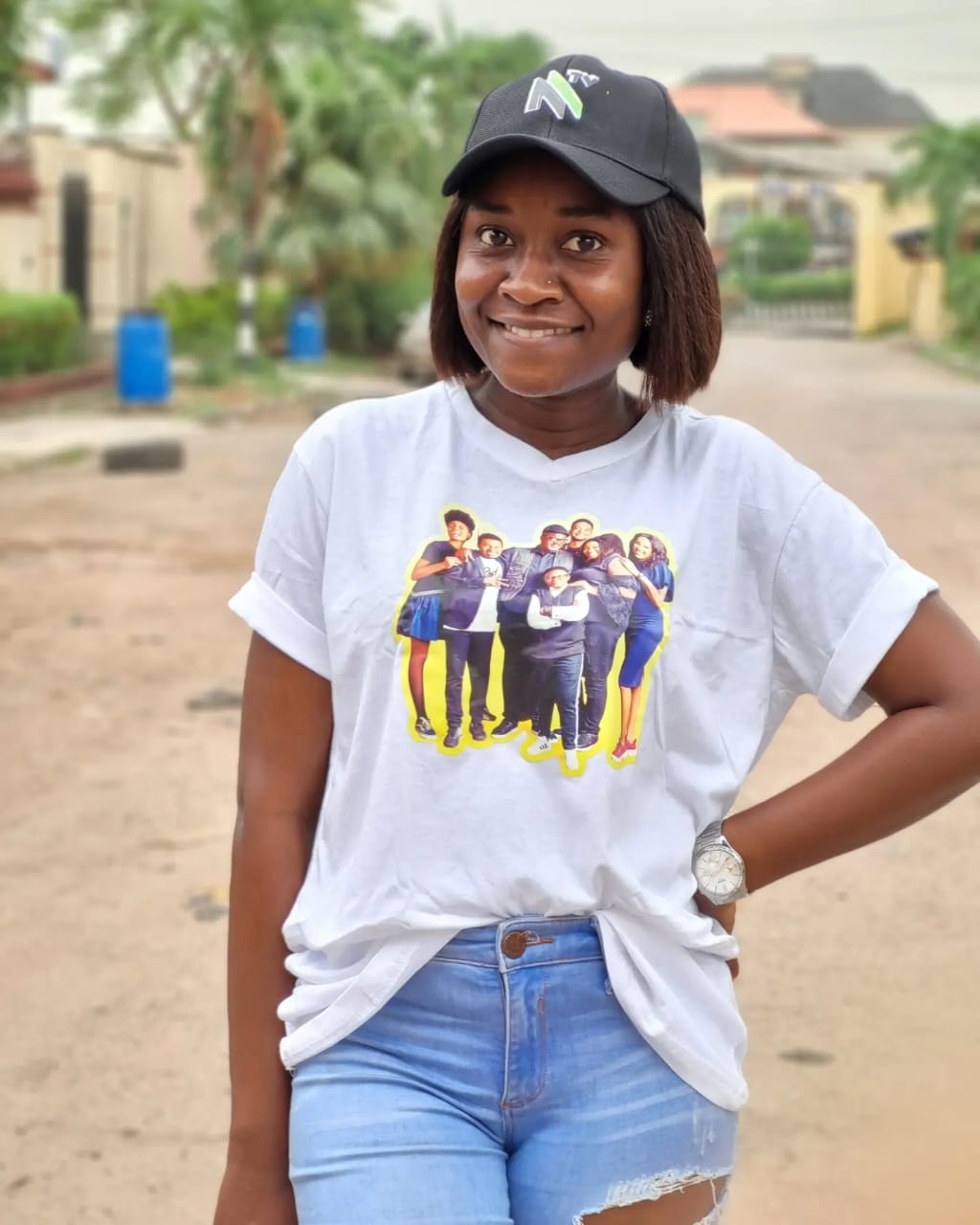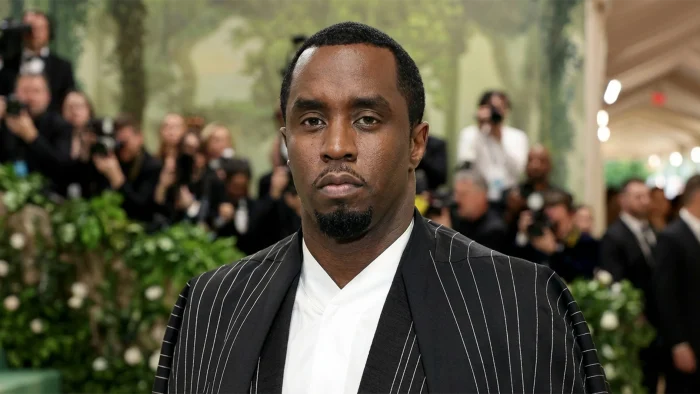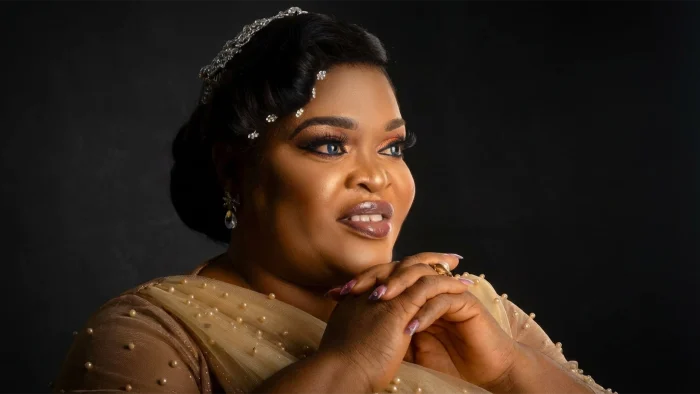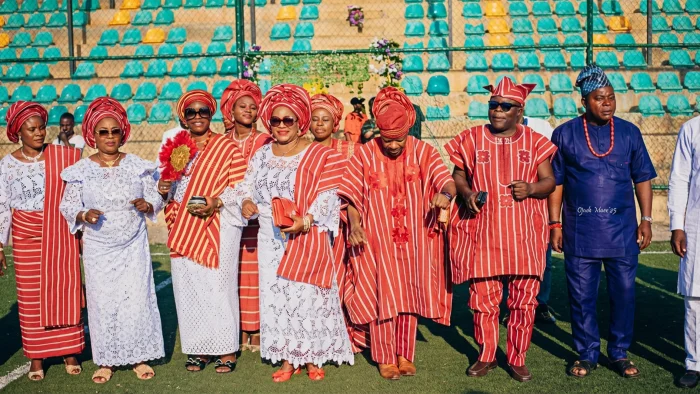 Preye Blessing Odibo is an experienced series producer, content developer, actor, and choreographer with over a decade of expertise in stagecraft, TV, film, and radio production. She is also proficient in producing, production management, scheduling, subtitling, and acting. She tells GREGORY AUSTIN NWAKUNOR how Nollywood has evolved from low-budget productions to a thriving industry with improved quality, international collaborations, and diverse storytelling.
Preye Blessing Odibo is an experienced series producer, content developer, actor, and choreographer with over a decade of expertise in stagecraft, TV, film, and radio production. She is also proficient in producing, production management, scheduling, subtitling, and acting. She tells GREGORY AUSTIN NWAKUNOR how Nollywood has evolved from low-budget productions to a thriving industry with improved quality, international collaborations, and diverse storytelling.
PREYE Odibo is a prominent Nigerian television and film producer. She is widely recognised for her contributions to television, having produced 2,080 episodes of The Johnsons, the most popular comedy series on the Africa Magic platform, which has garnered significant viewership and won the AMVCA Award for Best Africa Magic Original Comedy Series. In addition to The Johnsons, she has also produced the critically acclaimed series Wura on Showmax.
Her efforts have consistently challenged norms, and shown that African narratives can resonate on a global platform. As a female producer navigating a challenging industry, her legacy centres on dismantling barriers and fostering opportunities for others in film and television, particularly, for women.
She says over the past decade, Nigeria’s film and television sector has transformed into a significant player in the global entertainment scene. Nollywood has evolved from low-budget productions to a thriving industry with improved quality, international collaborations, and diverse storytelling. The rise of streaming services like Netflix, Showmax, Prime Video and recently launched Circuits TV has expanded distribution and global visibility for Nigerian filmmakers, leading to better production standards and more compelling narratives for both local and international audiences.
“With more than nine years of experience in the entertainment sector, my career as a producer has been characterised by continuous learning, adaptation, and artistic development. Each project has contributed to shaping my methodology, enhancing my capacity to narrate engaging stories, oversee extensive productions, and navigate the dynamic realm of film and television, whether in a studio environment or on location,” Odibo quips.
“ I have come to appreciate the significance of adaptability, effective team coordination, and proactive planning to address production challenges. This journey has solidified some of the most crucial lessons I have acquired over the years: Resilience is essential; large-scale productions often present unforeseen challenges, could be nature or even human challenges and it is perseverance that distinguishes success from failure,” she smiles.
Her journey into the entertainment industry has been a well-known aspect of her life since childhood. Whether as a dancer or an actor, she has consistently excelled in these areas from a young age, achieving the title of best dancer in every competition she entered. Therefore, when she was admitted to study theatre arts at the University of Ibadan, “the decision was straightforward for me, especially since I had also considered law as a potential field of study. My fascination with the filmmaking process has been present since my early years. While I cannot pinpoint a specific individual or event that inspired me, I believe that my passion for entertainment encompassing television, film, and stage is inherently ingrained within me. This intrinsic talent was further acknowledged during my National Youth Service Corps (NYSC) programme, where I served as the dance director for my cohort in 2011-2012.”
Her aspiration is to be remembered as a storyteller of impactful, culturally significant narratives, a mentor to emerging talents, and a contributor to the industry’s evolution through excellence and innovation. Ultimately, she hopes her work continues to inspire, entertain, and leave a lasting impression, demonstrating that with passion and determination, anything is achievable.
Beyond her work with Africa Magic, Odibo has successfully line-produced several films, including Conversations in Transit on Circuits TV. She also managed the production of the film, Voiceless, which received the award for Best Indigenous Language Movie in Hausa and some yet-to-be-released films.
An Invitation to an introductory meeting in London with Technology Ecosystem Stakeholders organised by the UK Government and the Fintech community under the existing contract of the British Deputy High Commission in April 2022, to collaborate with filmmakers across Africa has impacted her career trajectory.
“Throughout my career, I have had the privilege of collaborating with renowned directors like Robert O. Peters, a USA-based filmmaker known for the acclaimed film, 30 Days in Atlanta, writers and production teams across various platforms. I have produced critically acclaimed films and TV series for production companies and organisations such as MNET (Africa Magic), Native Media (Wura and The Johnsons and other credits) have been celebrated for their innovation, cultural relevance, and audience engagement.
Collaborating with cultural experts and diverse voices ensures accuracy and representation. The project Wura exemplifies this approach, featuring relatable characters and local flavours that resonate with audiences, “we had to go film in Ife and went all the way to Iperindo to film which is the major backdrop that the series is set on.”
She says, “Collaboration is vital; a successful production relies on the synergy among directors, actors, crew members, and creative contributors. I have always believed in the mantra ‘We’ rather than ‘I’ The word ‘We’ will get you farther in life with your team than the word ‘I’ and like my boss, Rogers Ofime, will say, ‘The star of the team is the team’ Storytelling must be flexible; adapting a narrative for a new audience necessitates both honouring the original material and embracing innovation. Production transcends logistics; it involves fostering an environment where creativity can flourish despite limitations.
Through my involvement in various projects, whether as a series producer or line producer, I have had the opportunity to grow and lead intricate endeavours such as Wura, Voiceless and Conversation in Transit, thereby, expanding the horizons of my craft.”

According to her, these collaborations reflect my ability to foster strong professional relationships and contribute meaningfully to the global entertainment industry. Can you share your journey into the entertainment industry? What inspired you to pursue a career in television, film, and stage production?”
Moreover, there is a growing emphasis on cultural storytelling, with filmmakers exploring historical and socially relevant themes that highlight Nigeria’s rich heritage. International co-productions are bridging Nollywood with Hollywood and other global industries.
Despite these advancements, challenges such as piracy, funding issues, and distribution obstacles persist. Nonetheless, the industry continues to innovate and grow.
According to Odibo, creating culturally relevant and socially impactful content requires a deep understanding of audience dynamics, societal challenges, and authentic storytelling. I focus on narratives that reflect local traditions and values while addressing contemporary social issues.
She uses film and television to spark social discourse on topics such as gender roles, economic inequality, and identity.
“As culture evolves, I adapt to emerging trends and platforms; ensuring my content remains impactful and true to the society it represents. I identify as a creative producer, actively involving writers in developing stories that resonate with audiences,” she confesses
How does she manage the pressures of producing high-quality content while meeting tight deadlines?
“Producing high-quality content under tight deadlines requires strategic foresight, flexibility, and collaboration. My experience with Wura and The Johnsons has given me a systematic approach to balancing quality and efficiency. For long-running series like The Johnsons, I emphasise thorough pre-production planning, including script finalization and crew coordination, to ensure consistency. In Wura, I demonstrated adaptability by managing on-site challenges while keeping the production on schedule,” Odibo says.
Producing The Johnsons, a sitcom aired on Africa Magic with a demanding schedule of 260 episodes yearly for eight seasons, she actually started from Season 5 as the Line producer before becoming the Series Producer in its 8th Season till its 12th Season presents distinct challenges that require resilience, creativity, and exceptional organisational capabilities.
“One of the primary obstacles is ensuring consistency in storytelling and quality throughout such a substantial number of episodes. The rapid production cycle necessitates that each episode remains engaging, humorous, and innovative, which demands ongoing script development, robust character interactions, and an effective editing process,” she confesses. “Another significant challenge lies in scheduling and coordination. Overseeing a large cast and crew while adhering to daily shooting schedules makes time management imperative. Any production delays whether caused by unforeseen circumstances such as cast availability or technical difficulties—can disrupt the entire workflow, underscoring the importance of strict compliance with production timelines. Additionally, as a family-oriented show, it is essential to uphold the moral values that The Johnsons is recognised for.”
She adds, “Moreover, maintaining the energy and chemistry that contribute to a sitcom’s success over hundreds of episodes necessitates careful direction and a motivated team. The challenge is to keep performances vibrant and humour sharp while ensuring the show adapts to reflect contemporary societal trends and audience expectations. Despite these hurdles, the successful delivery of a series of this scale each year exemplifies effective leadership, collaboration, adaptability, and a deep passion for storytelling. Through strategic planning and problem-solving, The Johnsons continues to captivate audiences while upholding its high production standards.”
In your opinion, what makes a television show successful?
“A successful television program combines captivating narratives, relatable characters, cultural significance, and high production values. Insights from Wura and The Johnsons that I have successfully series produced, I can identify key elements such as compelling narratives – Wura captivates with drama and suspense, while The Johnsons engage through humour and relatable family dynamics. Robust character development – Both series feature memorable characters that resonate with viewers.
Consistency and flexibility – The Johnsons produces 260 episodes yearly, requiring ongoing creativity, while Wura adapts a South African series to fit Nigerian culture. Cultural and social significance- Wura explores themes of power and ambition, while The Johnsons connects with families through humor and real-life scenarios. High production quality – Both series maintain exceptional visual and technical standards,” she explains. “In summary, a television show’s success relies on its ability to entertain, engage, and adapt while delivering high-quality content.”
Throughout her professional journey, several pivotal milestones have significantly influenced her development and achievements within the entertainment sector. A project she consistently highlights is The Johnsons, which she regards as her foundational work as a producer. This series provided her with invaluable insights into the production process, ultimately shaping her identity as a producer. “I always refer to The Johnsons as “My Baby” it was like having your own child that you nurture and in return makes you a good mother in the society. Another critical milestone in my career was my role as the series producer for Wura.”
This project stands out as my most notable achievement, as it involved a location-based adaptation that demanded meticulous planning, resilience, and a commitment to cultural authenticity to resonate with audiences. Although it comprised only 260 episodes, the project was both challenging and monumental, making history with its first and only season, which received widespread acclaim globally.
These experiences have collectively enhanced my proficiency in film and television production, equipping me to navigate the industry effectively while creating engaging and impactful content.
Can you share a memorable moment from your time on The Johnsons?
“The production of The Johnsons has consistently been characterised by unforgettable experiences, as the cast and crew operate as a cohesive family, fostering a warm and collaborative environment on set each day. A particularly notable occasion was the celebration of the 1,500th episode milestone.
This event resembled a grand reunion and festivity, with all participants donning matching customized t-shirts to commemorate the special day. The episodes were particularly remarkable, featuring guest appearances from celebrities such as Alibaba, Omawumi, IK Osakioduwa, Hilda Dokubo along with crossover cameos from Tinsel actors Funlola Aofiyebi-Raimi (Brenda), Iyke Okechukwu (Chuks Obi), and Florence Okechukwu (Ene Obi). Each episode during this significant milestone was humorous, clever, and meticulously crafted to showcase the unique traits of the guest stars, resulting in an extraordinary experience for both the cast and the audience. This occasion truly encapsulated the spirit of The Johnsons which is joy, togetherness, and familial bonds.”
Success in the entertainment industry as a producer, content creator, or actor requires creativity, leadership, adaptability, and business acumen. Reflecting on her career, Odibo says she takes great pride in “the resilience, creativity, and leadership I have demonstrated throughout various projects. From producing The Johnsons, which garnered multiple awards across Nigeria, to the TV series Wura, a pioneering telenovela for Showmax, and other Africa Magic productions, I have been involved in very significant.”








